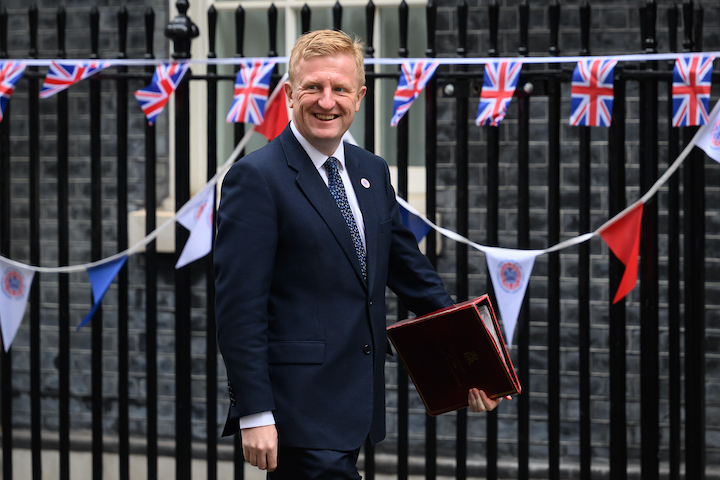Oliver Dowden had 20 years and four Tory leaders to prepare him for his understudy moment at PMQs. He’s helped a series of leaders work out their attack lines, their defences and their jokes – so it’s unsurprising that his chance at the despatch box sparring with Angela Rayner was so textbook that he should probably offer it in a seminar on a Skills in Politics Course for aspiring Tory leaders. It was anatomically perfect: there was the opening joke about the opposition (‘I was, though, expecting to face the Labour leader’s choice for deputy prime minister if they win the election, so I’m surprised that the Lib Dem leader isn’t taking questions today’) and a compliment to his opponent about what a pleasure it was to be facing her.
Dowden defended his party’s record on the NHS and child poverty, saying he was ‘proud’ to do so.
There was a jibe about Angela Rayner’s support for Jeremy Corbyn and another memorable zeitgeist comparison about she and Keir Starmer being the ‘Phil and Holly of British politics’ because they’re ‘at each other’s throats’. Labour-run Wales got its regular namecheck, as did the opposition’s refusal to support the minimum service levels for strikes. When Rayner referred to her own backstory, saying she had grown up feeling sick to her stomach about whether her wages would cover all her household bills, Dowden shot back that ‘this comprehensive school boy’ wasn’t going to take any lectures from Labour. All boxes neatly ticked.
Rayner was keen to exploit the National Conservatism conference, describing it as a ‘Trump tribute act’ and a ‘carnival of conspiracy’ that showed the Tories are preparing for a spell in opposition. She also claimed that the government wasn’t offering minimum service levels and had run public services down, illustrating this with questions about hospital waiting lists and child poverty.
Dowden defended his party’s record on the NHS and child poverty, saying he was ‘proud’ to do so. He also told the Chamber that crime was down and there were record levels of workers in employment. The question that both he and Rayner are wrestling with privately, though, is whether voters will feel that their employment means they can afford their lives, and whether their neighbourhoods feel safe enough to back up what he said about crime. He will know from his many years in various Tory leaders’ offices that even a textbook session at PMQs can’t change the answer to that big question.







Comments